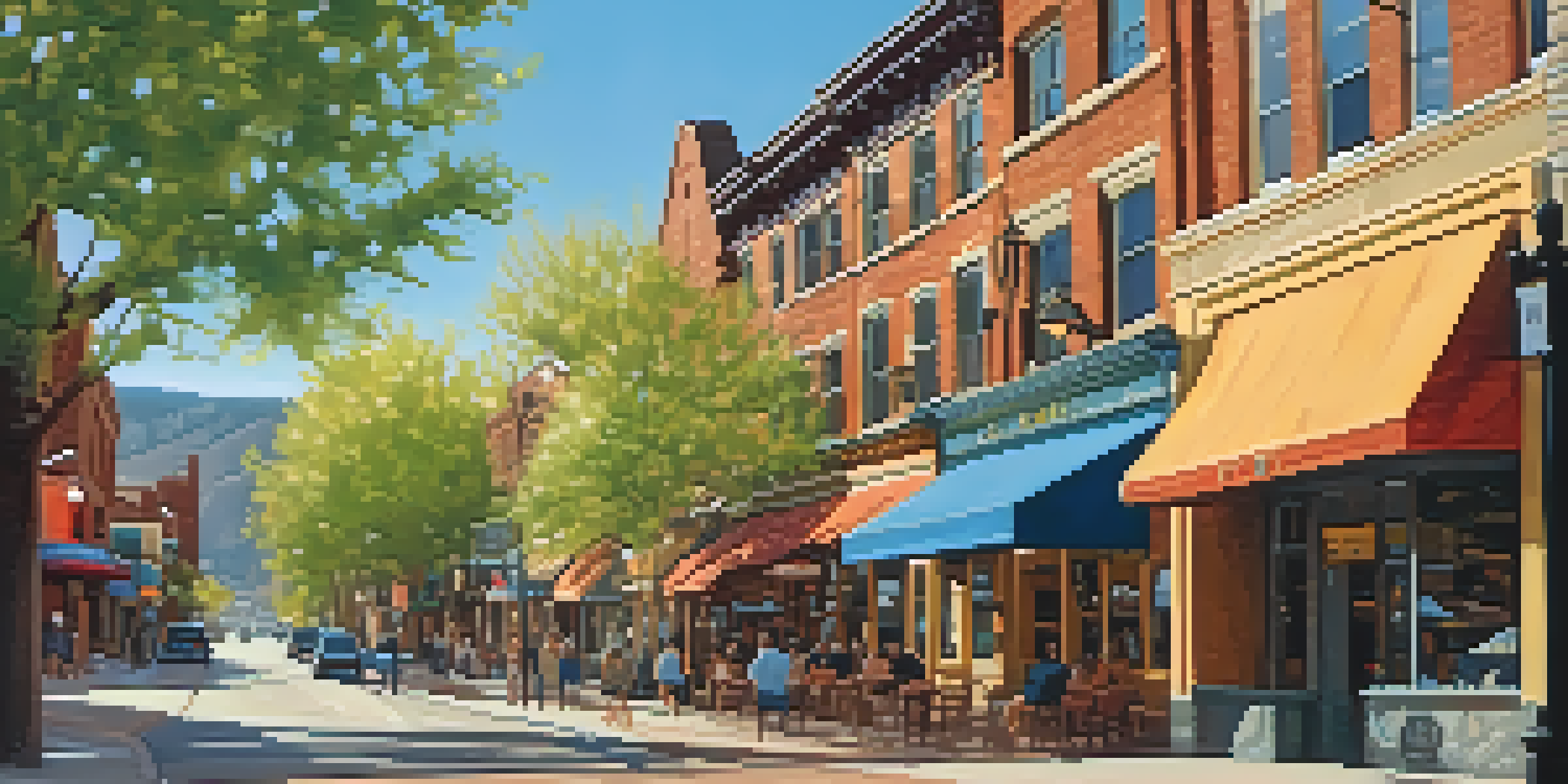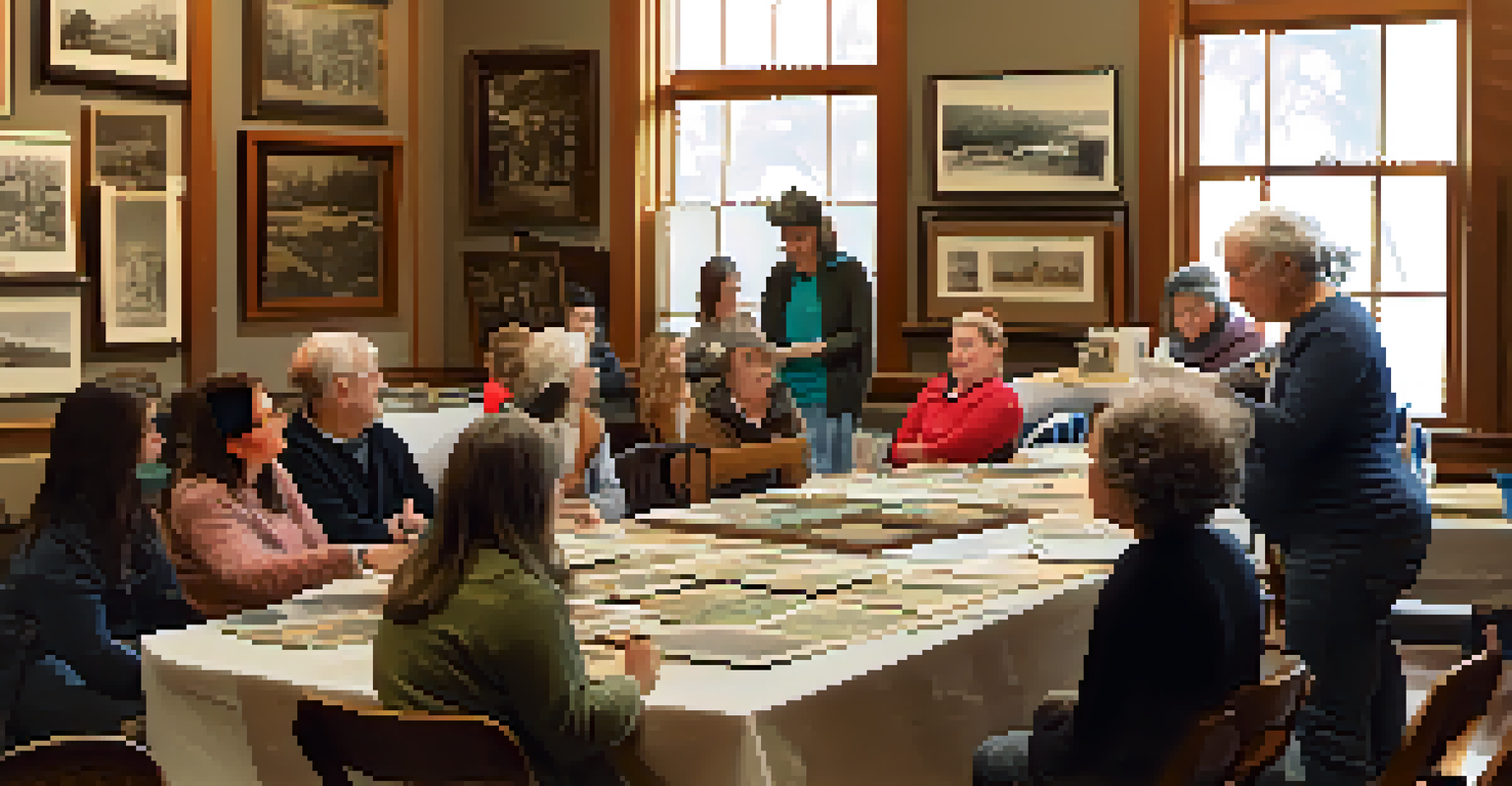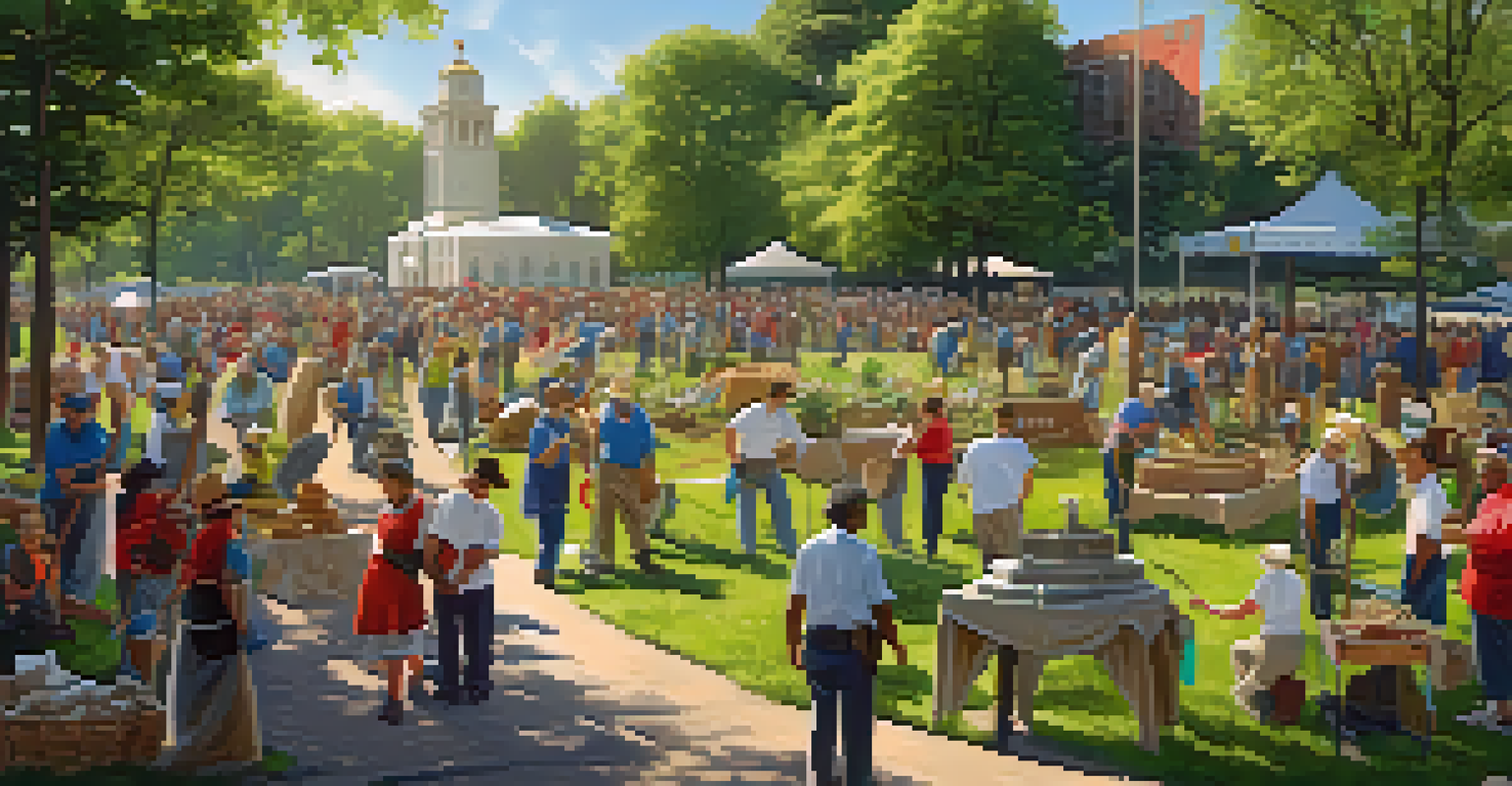Boulder's Historical Societies: Guardians of Our Heritage

Introduction to Boulder's Rich History and Heritage
Nestled at the foothills of the Rockies, Boulder boasts a vibrant history that reflects its diverse culture and community. From its early settlement days to modern times, the city has been shaped by various influences, including Native American heritage and pioneer spirit. Understanding this rich tapestry is essential for both residents and visitors alike, as it adds depth to our appreciation of the area.
History is not a burden on the memory but an illumination of the soul.
Boulder's historical societies play a crucial role in keeping this history alive. They serve as guardians of our local heritage, meticulously documenting and preserving artifacts, stories, and traditions that may otherwise fade into obscurity. By engaging with these societies, community members can connect with their past and understand the foundations upon which Boulder was built.
Through various initiatives, these organizations not only conserve the past but also educate the public about its significance. Exhibitions, lectures, and guided tours offer opportunities for people of all ages to learn about Boulder's history in an engaging way. By participating in these activities, we honor the legacy of those who came before us.
The Role of the Boulder Historical Society
The Boulder Historical Society (BHS) is one of the most prominent organizations dedicated to preserving the city's history. Founded in 1944, BHS has evolved to become a vital resource for historical research and education. The society maintains an extensive archive of documents, photographs, and artifacts that tell the story of Boulder’s past.

One of the key initiatives of BHS is its commitment to community engagement. They host events that invite locals to share their stories and experiences, creating a collective memory that enriches Boulder's narrative. This grassroots approach not only empowers individuals to take pride in their heritage but also fosters a sense of belonging within the community.
Boulder's Rich History and Heritage
Understanding Boulder's diverse history enhances appreciation for its culture and community.
Additionally, the Boulder Historical Society collaborates with local schools to integrate history into the curriculum. By providing resources and support for educators, they ensure that the younger generation understands and appreciates the significance of their local history. This investment in education is crucial for nurturing future guardians of Boulder's heritage.
The Importance of Preservation Efforts
Preservation efforts are vital in maintaining the integrity of Boulder's historical sites and artifacts. These initiatives help safeguard the physical remnants of our past, such as buildings, monuments, and landscapes. By protecting these sites, we can ensure that future generations have the opportunity to learn from them.
Preservation of one's own culture does not require contempt or disrespect for other cultures.
Organizations like BHS often advocate for the preservation of significant landmarks, pushing for policies that protect historical sites from development or neglect. Their efforts not only help maintain the character of Boulder but also promote tourism, as visitors are drawn to the city's rich history. This, in turn, benefits the local economy.
Moreover, preservation is about storytelling. Each restored building or artifact carries with it a narrative that connects us to our ancestors. These stories foster a sense of identity and continuity, reminding us of where we came from and guiding us towards a more informed future.
Community Involvement in Historical Societies
Community involvement is the lifeblood of Boulder's historical societies. Volunteers play a crucial role in various functions, from cataloging collections to organizing events. Their passion and dedication help these organizations thrive, making history accessible and engaging for everyone.
Residents are encouraged to participate in local history projects, whether through sharing personal stories or helping with research. This collaborative approach not only enriches the societies' resources but also strengthens community bonds. As individuals contribute their unique perspectives, they help paint a fuller picture of Boulder's past.
Community Involvement is Key
Active participation in historical societies strengthens community bonds and enriches local heritage.
Engagement with historical societies often leads to a greater appreciation for the community's heritage. As people learn about their local history, they develop a deeper connection to their surroundings, fostering pride and stewardship. This shared commitment to preserving Boulder's history creates a more vibrant and united community.
Educational Programs Offered by Historical Societies
Educational programs are a cornerstone of Boulder's historical societies, designed to inform and inspire people of all ages. These programs range from workshops and lectures to interactive exhibits that bring history to life. By making learning fun and accessible, these societies create an engaging environment for exploration.
For instance, many historical societies offer guided walking tours of Boulder, allowing participants to experience the city's history firsthand. These tours often highlight significant landmarks and share fascinating anecdotes that bring the past into focus. Such immersive experiences leave a lasting impression and ignite curiosity about local history.
Additionally, schools often partner with historical societies to facilitate field trips and classroom presentations. This collaboration ensures that students receive a well-rounded education that includes a strong sense of local heritage. By fostering a love for history in the younger generation, these programs help cultivate future advocates for preservation.
Challenges Faced by Historical Societies
Despite their vital role, Boulder's historical societies face several challenges in their mission to preserve the past. One major hurdle is funding; many organizations rely on donations and grants, which can fluctuate year to year. This uncertainty can hinder their ability to manage collections, run programs, and maintain historical sites.
Another challenge is the need to engage younger generations. With technology constantly evolving, historical societies must find innovative ways to capture the attention of a digital-savvy audience. By leveraging social media and interactive online content, these organizations can reach a broader audience and spark interest in local history.
Preservation Efforts Matter
Efforts to preserve Boulder's historical sites ensure future generations can learn from the past.
Finally, the preservation of intangible heritage, such as oral histories and community traditions, poses its own challenges. As demographics shift and communities change, important stories may be lost if not documented. Historical societies must prioritize collecting these narratives to ensure that Boulder's diverse history is represented and honored.
The Future of Boulder's Historical Societies
Looking ahead, the future of Boulder's historical societies is promising, as they continue to adapt to changing times. Embracing technology, these organizations are increasingly using digital tools to archive and share their collections online. This shift not only makes history more accessible but also attracts a younger audience eager to explore their heritage.
Moreover, collaboration among different historical societies can lead to innovative programs and events that benefit the entire community. By pooling resources and sharing expertise, these organizations can amplify their impact and reach more people. This collective approach fosters a stronger community spirit and a shared commitment to preserving history.

Ultimately, the ongoing efforts of Boulder's historical societies will ensure that the stories of the past remain alive and relevant for future generations. By inspiring a sense of pride and connection to our heritage, they help cultivate a community that values its history as a guiding light for the future.